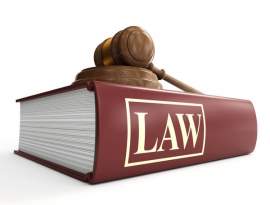
A Full Guide on Bail Bonds

What are Bail Bonds?
When an individual is arrested, he or she, depending on the crime in question, may have the opportunity to pay bail. This delivery of payment is made by the arrested to allow them to leave jail until their trial commences. Bail bonds are established so that the court can help ensure that the accused party will appear at their future court dates.
The right to leave the court system or jail until trial through the payment of a bail bond does not require the accused individual to pay his or her exact bail; bail bonds typically take the form of a percentage of the individual’s bail—most often a bail bond is established as 10% of the accused party’s bail.
In some instances, the amount of bail aligned with bail bonds may exceed the accused party’s ability to pay; in these instances, bail bonds are viewed as a useful resource since they allow individuals to pay a certain percentage of their bail—typically 10%--through the hiring of a bail bond agency. In addition to the percentage cost, the payment of a bail bond is typically refunded based on the original bail amount if the accused party shows up for all of his or her court dates. Typically when an individual pays their bail bond through an agency, the company that posted the bail for the accused will get its money back plus the percentage put up by the accused party as their form of profit. In addition to enabling an accused individual to see their family, bail bonds are also effective in reducing the prison population and subsequently lowering the cost of the system—fewer people in jail yields a smaller reliance on food costs.
Amounts of a Bail Bond:
Depending on the crime in question, bail may be determined through a preset schedule or in a bail hearing. Furthermore, in some cases, a bail hearing may combined with an arraignment, when the judge hears the charges filed against the accused and asks to detainee to enter a plea. In order to create an incentive to return to court, the legal system will routinely ask for bail money in proportion to the severity of the charges in question.
If the accused party cannot meet their bail, the individual may inquire for a bail bonds agency or person for help. In these cases, the accused will post a percentage of the bail and the bail bonds agency will pay the rest. Through this relationship, bail bonds take the form of surety bonds, was they are used to guarantee the fulfillment of the entire bail if the accused party fails maintain the terms of release.
Who issues Bail Bonds?
Bail bonds are typically issued by private bail bond agencies; the fees associated with a bail bond agency are typically non-refundable. The majority of bail bond agencies will require a form of collateral; by paying the bail for the accused party, the agency assumes the risk that the individual may not show up to their court date, which creates a default forfeiting the bail. Collateral, thus helps ensure that the bail bond agency will recover its money—when the accused appears at their court hearing, the bail bond is refunded to the agency and the agency returns the collateral in exchange for a fee.
NEXT: Understanding County Bail Bonds
Link To This Page
Comments
Tips





















